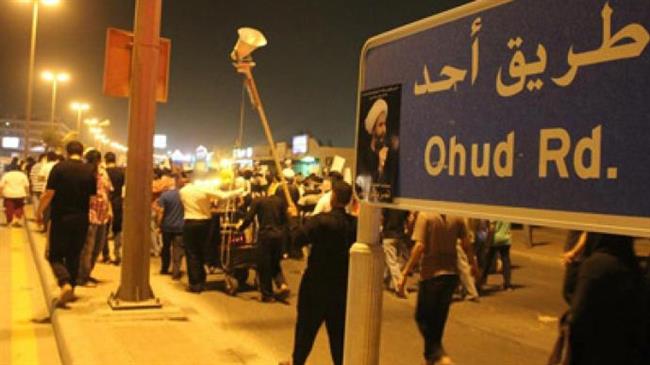
RNA - The leading international human rights group in a recent statement decried the Saudi Arabian Supreme Court’s decision to uphold death sentences against the group convicted of participating in the protests.
“The men about to be executed told the court they were tortured, which makes their confessions invalid - most of us could be forced to say anything under torture. They were then charged with offences related to their alleged participation in anti-government demonstrations in Saudi Arabia,” read the statement.
Amnesty said, "We must stop this Saudi execution. All that stands between these 14 men and their death is King Salman’s signature. Join us in urging the Saudi authorities to stop the executions now."
In June 2016, the the Specialised Criminal Court (SCC) sentenced to death the 14 men charged with crimes relating to protesting in what Amnesty says was a "grossly unfair mass trial."
"Following a grossly unfair trial, where the men were put in a group with others being sentenced, the judge handed them the ultimate cruel and inhumane punishment: the death sentence,” said Amnesty.
The activists were convicted of a wide array of crimes that include bomb making, participation in riots and shooting at security vehicles.
According to reports, the trial process preceding the verdicts took place at the criminal court dealing with terrorism-related cases, a tribunal viewed by legal experts as an Interior Ministry tool to suppress opposition activists.
This is while some of the defendants had said during the hearing sessions that they were forced into false confessions through physical and psychological torture.
In July last year, Samah Hadid, Director of campaigns for the Middle East at Amnesty International, said in a statement that "by confirming these sentences, Saudi Arabia's authorities have displayed their ruthless commitment to the use of the death penalty as a weapon to crush dissent and neutralize political opponents."
"King Salman's signature is now all that stands between them and their execution. He must immediately quash these death sentences which are a result of sham court proceedings that brazenly flout international fair trial standards."
In May 2017, the UN’s special rapporteur on human rights and counter-terrorism, Ben Emmerson, urged Saudi Arabia to stop using the law against people peacefully exercising their rights to freedom of expression, association and assembly.
Shia activists belong to the restive Qatif region, which has been the scene of peaceful protest rallies against the ruling Al Saudi regime in recent years.
According to Press TV, the rulers in Riyadh have been under fire by international rights groups for using the so-called “anti-terrorism law” to silence critical voices in the kingdom. Riyadh adopted a revised version of the law in 2014, enabling tougher penalties for those found guilty of terrorism.
The tough verdicts were issued amid the latest wave of unrest in the Shia town of Awamiyah in Qatif.
Qatif was home to Shia cleric Sheikh Nimr Baqir al-Nimr, an outspoken critic of the Saudi policies whose execution in 2016 by the Riyadh regime sparked angry protests at home and abroad as well as widespread international condemnations.
Protesters have been demanding reforms, freedom of expression, the release of political prisoners, and an end to economic and religious discrimination against the oil-rich region, but the marches have been met with a heavy-handed crackdown by the Saudi military.
847/940